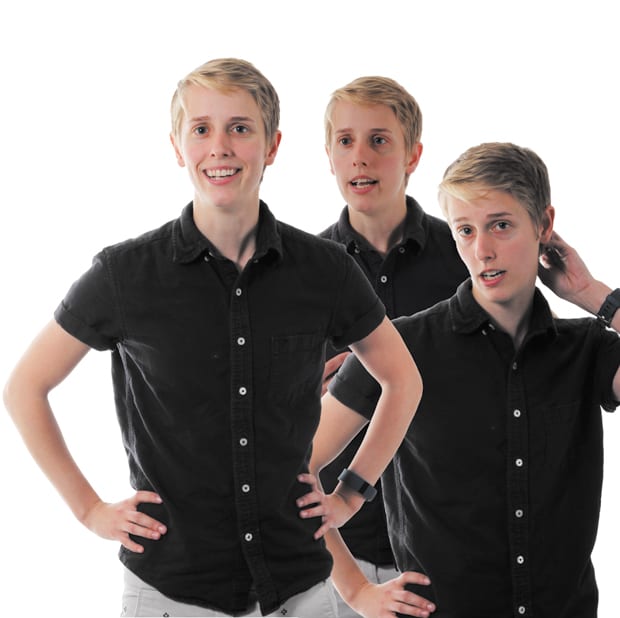UTA student Taylor Long is collecting oral histories of disabled transgender people

JAMES RUSSELL | Contributing Writer
james.journo@gmail.com
Taylor Long was at a social justice conference at the University of Texas at Arlington when she first learned one of the largest protests in modern United States history was lead by disabled people. The speaker, Sarah Rose, an associate professor of history at the university who also directs the minor in disability studies, described one of many 1970s era protests lead by a group of activists determined to secure one of many laws accommodating those with physical disabilities.
Long was floored.
“I thought, ‘What the hell? I had no idea,’” Long, a senior history major at the university, recalled thinking recently. “I hadn’t even learned about this before. Disabled people organized the largest sit-in in a public building ever. And don’t you think you’d know about it? But you don’t learn about Stonewall in class” either.
Those gaps in history textbooks didn’t deter Long, who is also minoring in women’s and gender studies. She is already well aware that history has often been written by straight, white, able-bodied men.
One class lead to another and soon Long was writing a 10-page research paper about the intersections of gender and disability, specifically about the politics of transgender bodies.
And now with Rose and others’ help Long is collecting those untold stories from American history. For the next two semesters, she is collecting the oral histories of disabled transgender individuals and their providers to be archived in the Texas Disability Archives at the university.
The goal of her project is to gather perspectives and experiences from within the medical field and police and political spheres from disabled transgender people and people who serve those communities.
Until recently, being transgender was classified as a disability itself. In 2013, the American Psychiatric Association’s Diagnostic and Statistical Manual of Mental Disorders, which lists all recognized mental health disorders, replaced the term “gender identity disorder” with “gender dysphoria” to describe transgender people. While still considered a disability, the change in terminology better reflects scientific difference between one’s gender and one’s identity.
“I want do this project because trans people are always left out of history. Being trans is not a negative thing. Neither is being disabled,” Long said. “It’s not disabling to be trans. Trans people can do all the same things able-bodied people can do, but they’ve been constructed as the same. To even get hormone therapy you had to go through a therapist and get a signed letter from a doctor. No one would make you do that for cosmetic surgery.”
Looking at the intersection of transgender and disabled identities is not limited to just physical identities but mental identities too, including those that are self-diagnosed.
“When a woman exhibits symptoms of autism, it’s perceived and categorized differently. A lot of woman in the disability community have self-diagnosed with autism,” Long said. “If the medical community won’t serve them in this way, it can’t help but hurt and limit them.”
According to a 2011 report from the National Center for Transgender Equality and National LGBTQ Task Force, 30 percent of those surveyed reported having a physical or mental disability compared to 20 percent of cisgender people, in part due to the trauma many transgender people face in the form of discrimination, harassment and violence.
“I think probably a large part of that is due to more trans people having common occurrences of mental disabilities. Obviously not all trans people have disabilities. But that’s what makes it interesting to study, it’s almost double the amount of national average,” Long said.
She is also interested in the idea of outing: how and why people come out. Or how and why they don’t.
Sometimes disabled transgender people face choices when coming out. Some people choose to come out as disabled but keep their trans identity a secret.
“You come out as a disabled person especially if your disability isn’t visible. And you come out as a trans person, what identities they choose to dispose at what times and how families react to both identities” all have strong impact, Long said. “They don’t want to be discriminated against for their trans identity and vice versa. It kind of gives differences of power and what outing can do for you in those situations.”
This article appeared in the Dallas Voice print edition October 21, 2016.
















